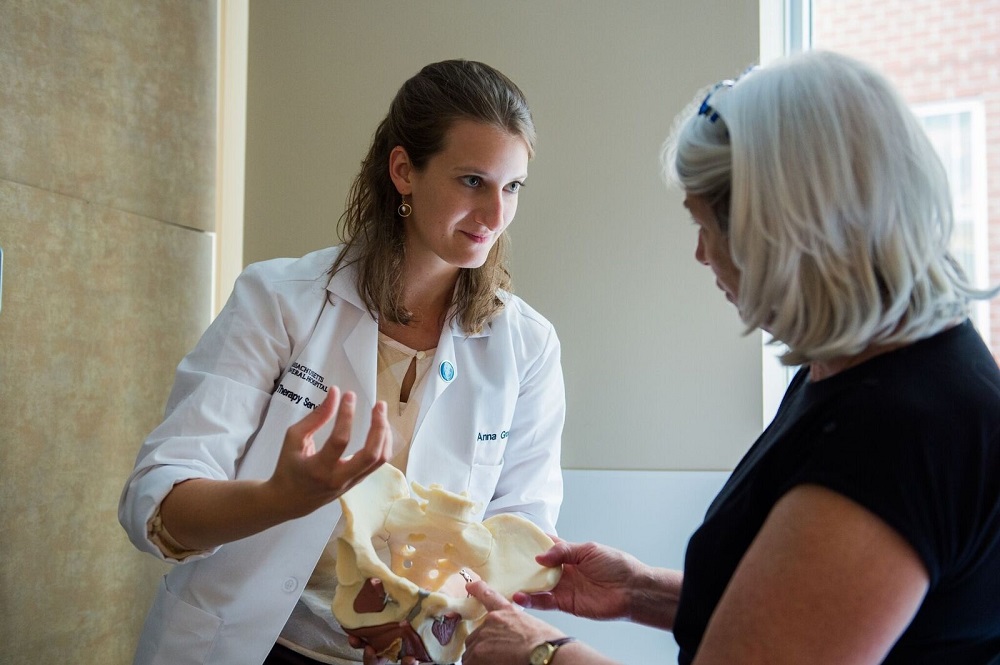Prehabilitation: Preparing for Surgery to Improve Outcomes
Lisa Keer, NBC-HWC, CEC explores the concept of prehabilitation, its key components, and practical steps you can take to prepare for surgery effectively.
Patient EducationDec | 16 | 2019
One in three women struggles with a pelvic floor disorder, but many do not seek treatment. Learn more about these disorders.
The pelvic floor is a network of muscles, ligaments and tissues in the lower abdominal area. It acts like a hammock to support the uterus, vagina and rectum. Pelvic floor disorders are caused by tears, weakness or poor function of the muscles and nerves in the pelvic floor.
Sometimes the start of symptoms related to a pelvic floor disorder is so gradual that women get used to them, or they don’t even notice them until something major occurs. But for many women, pelvic floor disorders worsen with time.
Whether it’s a frequent urge to urinate or an inability to control bowel movements, pelvic disorders are uncomfortable and embarrassing. As a result, they are also underreported and underdiagnosed. Many people also believe that they can’t be corrected.
“In the past, incontinence was something women just suffered through silently. But today more and more women are learning that there are many options, both surgical and non-surgical to address a variety of pelvic floor disorders,” explains May Wakamatsu, MD, director of Urogynecology and Reconstructive Pelvic Surgery in the Department of Obstetrics and Gynecology and co-director of the Pelvic Floor Disorders Center at Massachusetts General Hospital.
Learn more about types of pelvic floor disorders.
Mass General is home to a world-class team dedicated to comprehensive, one-stop treatment of pelvic floor disorders.
Lisa Keer, NBC-HWC, CEC explores the concept of prehabilitation, its key components, and practical steps you can take to prepare for surgery effectively.
Jordan Ball, MS, RDN, LDN provides guidance on what to eat when training for a marathon.
Lisa Keer, NBC-HWC, CEC looks at what overuse injuries are, how they happen, and how you can prevent them, whether you are an elite athlete or a weekend walker.
Lisa Keer, NBC-HWC, CEC explores why muscle mass matters and how you can preserve and build muscle mass to support your optimal health.
Lisa Keer, NBC-HWC, CEC provides tips to make your time outdoors safer during tick season.
Lisa Keer, NBC-HWC, CEC explores the link between perfectionism and how we use time.
Lisa Keer, NBC-HWC, CEC explores the concept of prehabilitation, its key components, and practical steps you can take to prepare for surgery effectively.
Jordan Ball, MS, RDN, LDN provides guidance on what to eat when training for a marathon.
Lisa Keer, NBC-HWC, CEC looks at what overuse injuries are, how they happen, and how you can prevent them, whether you are an elite athlete or a weekend walker.
Lisa Keer, NBC-HWC, CEC explores why muscle mass matters and how you can preserve and build muscle mass to support your optimal health.
